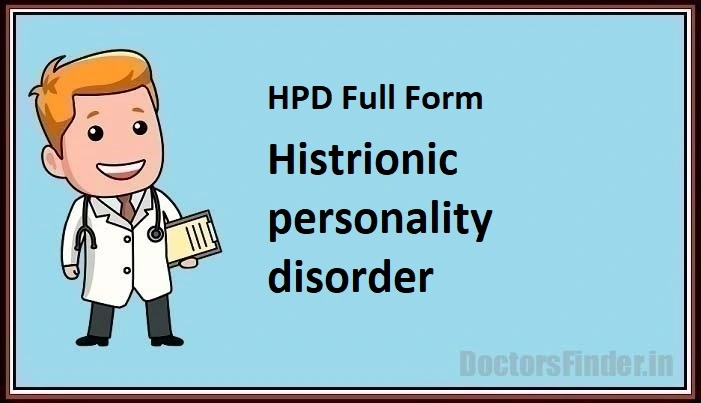The full form of HPD in medical term is “Histrionic personality disorder.”
A widespread pattern of extreme attention-seeking behaviours and emotional instability characterizes histrionic personality disorder (HPD), a mental health disease. Individuals with HPD frequently have a strong desire to be the center of attention and will act in vivid, dramatic, and provocative ways.
Although the precise origins of HPD are still unclear, it is thought that a complex interplay between genetic, biochemical, and environmental variables is responsible. In addition to having trouble controlling their emotions, people with HPD may exhibit excessive emotional reactivity and a propensity to overreact to stimuli. A mental health expert will normally perform a thorough evaluation, including a clinical interview and an assessment of symptoms, as part of the diagnosing process.
Even though there is no established practice for HPD, it is possible to control symptoms and enhance everyday functioning with the right care. For HPD, psychotherapy, especially cognitive-behavioral therapy (CBT), can be a successful therapeutic option. With the aid of this therapy, HPD patients can recognize and change harmful thought patterns and behaviors which may be causing some of their symptoms. Antidepressants or other anti-anxiety drugs may also be used to treat HPD symptoms.

People with HPD frequently need ongoing reassurance and reinforcement from others, making it difficult to sustain stable and meaningful relationships. Also, they could have the propensity to exaggerate their feelings and encounters, which makes their emotional display seem forced or hollow.